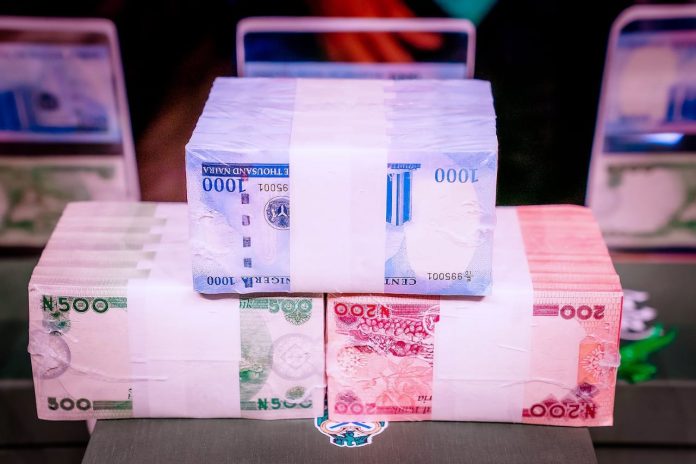In the run-up to the presidential election, the naira, the native currency of Nigeria, traded divergently across the foreign exchange (FX) market due to unpriced economic concerns caused by a lack of fresh naira notes in the country.
While a decline in demand helped the exchange rate in the foreign exchange market for investors and exporters, more demand for foreign currency on the parallel market caused the exchange rate to rise. The new notes are still hard to come by after the Central Bank of Nigeria’s deadline for the naira swap. Social discontent was caused by the development throughout the country, which is now experiencing high food inflation and fuel scarcity.
Economic activity has been hampered by the shortage since the beginning of February. Also, the inability to produce enough fresh notes to fulfill client demand resulted in the temporary closure of several institutions. Analysts stated there is a chance that the gross domestic product growth for the first quarter of 2023 would be severely impacted, even if the effects of decreased economic activity on the economy may not be accurately determined.
Despite widespread calls for the local currency to be devalued, investment firms are already recommending high net worth individuals’ customers to keep their assets in the United States dollar.. Despite increasing FX pressure on the naira and a newly revised currency circulation war, the naira only marginally strengthened in the investors’ and exporters’ FX window, closing at N461.25/$ from N461.50/$.
Due to increasing import demand in 2022 and decreasing revenue from crude oil sales, which still make up 90% of all foreign inflows annually, the naira lost around 11% of its value. Even though there were less naira in circulation, the pressure on the currency market increased as the exchange rate printed at 770.00 from N755 earlier in the week.
During the just concluded week, Nigeria’s President Muhammadu Buhari ordered the central bank to recirculate the old N200 into the banking system alongside the newly designed banknotes until April 10, 2023, when it will cease to be a legal tender.
Analysts believe that the move is aimed to curb activities of money laundering, vote-buying, and ransom-taking by Kidnappers. At the Interbank Foreign Exchange Forward Contracts market, the spot exchange rate moved further against the Naira by 3.82% to close at N462 from N445 from the previous week, according to currency traders.
Analysts said the exchange rate in the Naira FX Forward Contracts Markets was all green for the dollar index across all forward contracts except for the 1- Month tenor that appreciated by 01.39%to close at N486.88.
However, the forward rate 3-month contract declined by 1.5% to NGN493.97 and 1-year contract weakened by 14.4% to NN618.70. Requesting that the local currency should be devalued to its near fair value, analysts said they expect the lingering demand-supply imbalances to pressure rates across the FX segment in the new week.
Nigeria’s FX reserve maintained its descent for the fifth consecutive week, as the gross reserve position declined by $ 42.21 million to close at $ 36.78 billion, according to data from the Central Bank website.
The apex bank market intervention in the foreign exchange market has slowdown. Though, analysts projected a possible increase in FX inflow into external reserves following improved crude oil production amidst a wavering global market. Last week, the Oil prices swing signalled a negative close on Friday and was largely driven by the concerns that the Federal Reserve was not done with aggressive rate hikes which could counter the positive demand forecast from OPEC and IEA.
Nigeria’s bonny light crude price declined by 2.33% or $2.09 a week on week to close at $87.46 per barrel from $89.55 per barrel last week.













